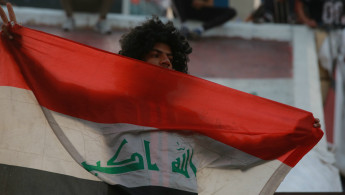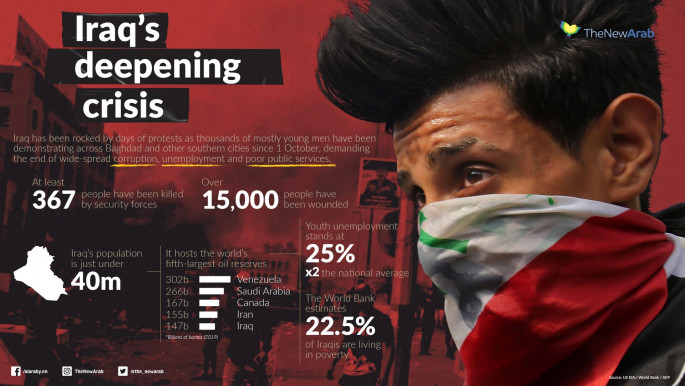"We share the protesters' legitimate concerns," a State Department spokeswoman said, echoing a US line through the two months of protests.
"We continue to urge the government of Iraq to advance the reforms demanded by the people, including those that address unemployment, corruption and electoral reform," she said.
The spokeswoman did not comment directly on Prime Minister Adel Abdel Mahdi's decision to quit, saying that the State Department deferred to the Iraqi government for further comment.
Abdel Mahdi had been seen as a nimble enough player to please both Iran and the United States, arch-adversaries that both have longstanding connections inside Iraq.
He weathered two months of protests that had killed more than 400 people but gave up Friday when he lost the support of the Shiite Muslim-majority nation's top cleric, Grand Ayatollah Ali Sistani.
The United States has repeatedly called for Iraqi leaders to listen to protesters but has been relatively restrained about intervening in a state that it completely recrafted after the 2003 invasion.
Much of the US focus has been on demanding that Iraqis distance themselves from neighboring Iran.
US Secretary of State Mike Pompeo has also threatened to impose sanctions on Iraqi officials found to have stolen wealth.
A State Department official said as the crisis escalated that Abdel Mahdi was the best prime minister that the United States could expect.
Vice President Mike Pence did not see him on a quick visit to Iraq last weekend, with a US official saying security concerns prevented him from going to Baghdad.
Follow us on Twitter and Instagram to stay connected






 Follow the Middle East's top stories in English at The New Arab on Google News
Follow the Middle East's top stories in English at The New Arab on Google News


